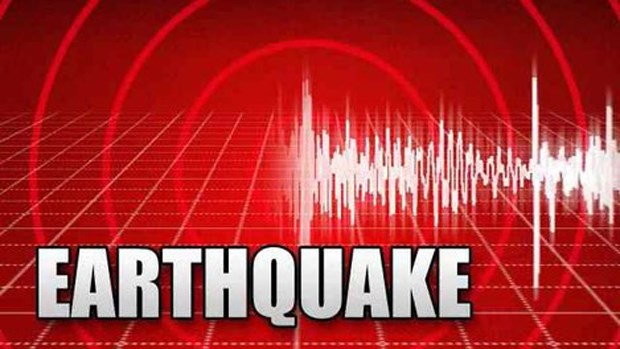The City of Richmond is reviewing its emergency preparedness and management programs in the wake of a report last month by B.C.'s Auditor General claiming the province is ill-prepared for a major earthquake.
In the event of a major catastrophe all three levels of government are likely expected to provide assistance to residents. Emergency Management BC (EMBC) manages emergency preparedness on a provincial level.
The Auditor General's report concluded that EMBC has not made significant progress on earthquake preparedness since 1997, back when a similar conclusion was reached about preparedness.
“Successive governments have decided to allocate scarce public resources to meet more immediate pressing demands, rather than to adequately prepare the province for a catastrophic earthquake that may or may not occur,” wrote Auditor General Russ Jones.
EMBC's budget has not increased since 2006 and staff had routinely ignored earthquake preparedness, noted Jones.
He also reported that EMBC does not adequately review emergency plans by municipalities. One of his many recommendations is to ensure effective communication between the emergency response efforts of different levels of government.
As a result of the Auditor General's report the Ministry of Justice announced a provincial consultation process will commence this month. It will assess the roles and responsibilities of all levels of government to plan for a major earthquake.
The stakes are high, since in the event of a major earthquake coordination between the city, the province and potentially the military could become a major issue without a solid plan for communicating.
Arguably, the importance of effective communication was no more pronounced than during Hurricane Katrina in 2005 in New Orleans. Then, local, state and federal authorities failed to work together in the aftermath, which led to public chaos and unnecessary deaths.
A major quake rocking Metro Vancouver is possible. It’s known as a megathrust earthquake and can happen when the tectonic plates off Vancouver Island collide.
According to a recent report to the city's community safety committee the city does not report to EMBC on its readiness but "enjoys a good reputation with them."
In 2008, in its most recent analysis of hazards, the city identified several vulnerabilities in Richmond including an aircraft accident, dangerous goods spill, earthquake, flooding, pandemic and chemical, biological, or radiological explosion.
Under law municipalities must have emergency plans that deal with preparation, response and recovery from emergencies like earthquakes. Among the many requirements the city must designate roles to city staff and volunteers, establish procedures and coordinate the provision of food, shelter and transportation to victims.
The city has an Emergency Management Plan that assesses the broader picture when a major catastrophe strikes. Its Emergency Information Plan addresses communication strategies and an evacuation plan looks at different scenarios for planning an evacuation.
Ted Townsend is the senior city official in charge of communications. He said in such a scenario — even one contained within Richmond — dozens of agencies can be involved so there needs to be great cooperation between them.
He noted hosting the Olympics in February, 2010, helped to develop relationships with various agencies, putting the city in a better position than most others in the province.
The city's main emergency operations centre is Richmond City Hall and if that isn't operational, the back-up centre is the works yard on Lynas Lane.
The city’s plan acts as a framework or model for various situations.
“Most decisions will be made on the fly as the situation happens,” Townsend said, adding that a rapid response team would assess structural integrity of buildings, starting with the most important ones like fire halls and police stations.
If the city has no cellular coverage and telephone landlines are inoperable officials may have to heavily rely on in-person communication as well as volunteers who have expertise in radio communication - namely members of the Richmond Amateur Radio Club.
"The reality is cell networks almost never work during an emergency. We're not looking to rely on cell communications during a major emergency," said Townsend.
One of the biggest concerns many residents have in the event of an earthquake is flooding.
Flooding due to tsunamis is not a “significant threat” according to the city.
A megathrust earthquake would produce a tsunami but Richmond would be sheltered by Vancouver Island. A less powerful earthquake in the Gulf of Georgia would produce a more sizable but less powerful wave that would largely dissipate at Sturgeon bank, Richmond’s tidal flats to the west of the dyke.
Townsend downplayed the severity of potential flooding in the city, noting it’s an “urban myth” the city is below sea level when, in fact, it’s one meter above it compared to mean sea levels.
He did say flooding would occur during high tide but only if the dykes broke and pumps failed in various places.
“The expectation is any flooding would be localized," he said.
Richmond’s dykes are 3.5 meters above mean sea level.
The city also reported that it has made "significant efforts" to educate the community. Personal preparedness is offered by the city and Townsend said this might be the most important thing of all.
"One of the biggest questions we get from people is 'Where do I go in the event of an earthquake? The reality is we can't tell you, because we don't know what buildings will be operable."
He added that looking at major catastrophes in recent years at a glance it’s probably wise to be post-disaster ready beyond the commonly prescribed 72 hours.



